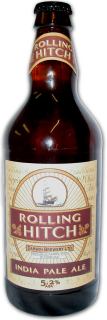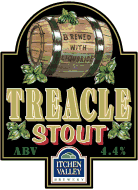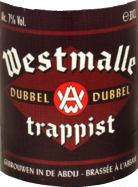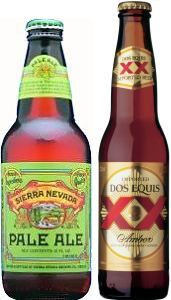| |
Beer at ASDA: assessing the range
by Willard Clarke, 11/04
ASDA, the giant national supermarket group, has unveiled a new beer range that will go some way towards mitigating the loss of the Safeway portfolio. Morrisons, Safeway's successor, has axed most of the brilliant beers painstakingly assembled by beer buyer Glenn Payne and replaced them with a range of national brands that fit with the group's policy of buying only deeply discounted products from big suppliers.
Asda, on the other hand, has reached a deal with the Society of Independent Brewers (SIBA), which represents most of Britain's micros. As a result, the group's beer buyer, Ged Futter, has rolled out on a regional basis beers from several micros. He has also given national coverage to one beer, Rollin' Hitch from the Darwin Brewery in Sunderland, which won top spot in a beer tasting organised by ASDA. Instead of inviting trained tasters and beer writers to choose the best beers available, the supermarket asked its customers for their views. It is greatly encouraging to find that supermarket customers chose as their favourite not a "national bland" but a beer positively booming with rich malt and hops character.
Darwin started life as a tiny micro in Crook, Co Durham, and moved to bigger premises in central Sunderland in 2002. It uses equipment from the long-closed
Butterknowle Brewery and specialises in brewing distinctive beers with a North-east character and also replicating long lost styles. It's best known for Flag Porter, made with yeast rescued from a shipwreck in the
English Channel in 1825: several bottles of porter were brought to the surface and Dr Keith Thomas of the Brewers' Laboratory (Brewlab) was able to isolate a few living yeast cells in one bottle and re-culture them
into a strain suitable for brewing. Brewlab is now based at the University of Sunderland and works closely with Darwin.
Rollin' Hitch, 5.2%, is Darwin's interpretation of a 19th-century India Pale Ale. It's brewed with pale malt only and uses Amarillo hops from the United States: the hop is an off-shoot of the leading American
variety, the Willamette, which in turn derives from the English Fuggle variety. The beer is named after a traditional shipping knot and the bottle labels features a picture of the Sunderland ship City of Adelaide,
which was involved in the India trade in Victorian times. |
|
 |
Rollin' Hitch has a superb aroma of hop resins, tart fruit and biscuity malt, with tangy citrus fruit and bitter hops in the mouth, and a long, dry, bitter and fruity finish. It's one of the finest interpretations of an IPA I have tasted for some time. If the use of American hops raises any purist eyebrows, it's worth pointing out that in Victorian England brewers used both malt and hops from many parts of the world. I have seen recipes that include barley from California and there is every possibility they also bought American hops as well. Darwin hopes to introduce a cask-conditioned version of Rollin' Hitch in the near future, so there are even greater delights in store.
 |
|
Other beers from small independent British brewers include Stallion and Stud (4.2% and 4.3% respectively) from the Hambleton Brewery in North Yorkshire, run by former SIBA chairman Nick Stafford, and a quite remarkable 4.4% Treacle Stout from Itchen Valley in Alresford in Hampshire, brewed with pale, crystal and chocolate malts plus roasted barley, treacle and liquorice, and Progress hops. It was not unusual for brewers of stout and porter in the 18th and 19th centuries to use such additions as molasses, treacle and liquorice. Spanish liquorice was imported especially for porter brewers. The Itchen Valley stout has a burnt toffee aroma, an
intensely bitter palate with tar, liquorice and treacle notes, and a bitter, dark malt and burnt fruit finish. |
Titanic Stout (4.5%), the current Champion Bottled Beer of Britain in the CAMRA annual awards, also features, as does a bottled version of Kelham Island Pale Rider (5.2%), the current Supreme Champion Beer of Britain in draught form.
Fraoch (5%), the fascinating beer that uses heather as well as malt and hops to recreate an ancient Scottish style, is available, along with Moonlight (4.5%), brewed by Arkells, the sturdily independent family-owned brewery in Swindon.
Casting his net wider, Ged Futter has assembled some excellent beers from mainland Europe and the Americas. The renowned Bavarian wheat beer brewer, Schneider of
Kelheim, has both its Weisse Original (5.4%) and its strong Doppelbock Aventinus (8%) on offer. Belgium's Trappist monastery beers are represented by Westmalle with its celebrated 7% Dubbel, while Liefmans features its
tangy and quenching Frambozenbier, a brown beer made with the addition of raspberries. |
|
 |
 |
|
One of the classic North American beers, Sierra Nevada Pale Ale (5.6%), is available: I recently reviewed the beer enthusiastically on this site: "Pale bronze colour, topped by a big fluffy head of foam. The aroma is spicy
and peppery from the hops, balanced by biscuity malt and tart citrus fruit. In the mouth, there is a superb balance of tart hops, juicy malt and tangy fruit while the long and lingering finish offers a hint of vanilla pods and marzipan
before it finally becomes dry, bitter and hoppy but underscored by sweet malt. It is a beautifully balanced and wonderfully refreshing beer" - and now it's more widely available.
It is also worth looking out for Dos Equis
Amber (4.5%) from Mexico, a now rare example of a "Vienna Red" lager. Vienna Red was first brewed in Austria in the 19th century, using a type of malt known as Munich that gave a copper or red hue to the finished beer.
The style crossed the Atlantic when Mexico was briefly part of the Austro-Hungarian Empire. |
ASDA's website has a store locator feature, to find your nearest store: Asda.com
|
|





